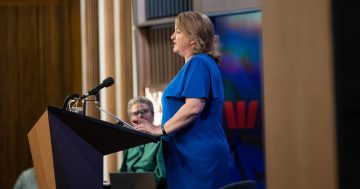Financy* says now’s the time formalise flexible work arrangements to guard against future employment uncertainty.
 Experts say that now is the time to be locking in your flexible work arrangements just in case increased business uncertainty leads to a more casualised workforce.
Experts say that now is the time to be locking in your flexible work arrangements just in case increased business uncertainty leads to a more casualised workforce.
That’s the take away advice that comes from interviewing Dr Ruchi Sinha, academic at the University of South Australia, who warns that if businesses continue to face uncertainty because of COVID-19, that many may lay off staff, say no to flexible work and move to a more casualised workforce.
If that happens, it’s very likely that women, who are more likely to work casually or have flexible work agreements in place, could be worse off.
“Casualisation and reliance on the gig economy might go up as a result, particularly if businesses realise that some permanent employee skill sets are no longer justified because business revenue is uncertain and may have seasonal ups and downs.”
Masters Chief Economist at Ernst & Young says she understands why some businesses would move towards employing more staff on a casual basis.
“Those industries that are at the forefront of social distancing such as retail, accommodation and food services, arts and recreation and travel – which all tend to employ more women than men – will continue to face an enormous amount of uncertainty.”
“Because of this, I can see why some employers would have a preference to keep more staff employed on a casual basis because it gives them more flexibility to increase their workforce if social restrictions come back in.”
If COVID-19 has shown us one thing it’s that flexible work arrangements, particularly working from home due to self-isolation, can be very productive and many advocates believe this will be a trend that continues post the pandemic.
“What we are seeing is an increase from clients coming to us wanting help around workplace flexibility measures and being able to promote themselves to potential employees who want access to flexible work options,” says Alex Lasry Chief Marketing Officer at Work180.
Flexible work arrangements tend to be more common among women than men because of the need to juggle work and home commitments, and as such are considered vital to supporting greater participation of females in the paid workforce.
But while more than 80 per cent of Australian businesses offer scope for flexible work practice, only 17 per cent embrace flexibility, leaving much room for improvement, according to research commissioned by Citrix and contained in the ‘State of the Flexible Nation’ report.
“I think that COVID-19 has shown that remote work is possible.”
“This may lead to more employees asking for flexible work arrangements. This is an opportunity for business to retain talent and improve the engagement of workers by seriously considering such requests.”
“But with the economic recession, general unemployment and uncertain revenue sources, businesses may have the power to say NO to such flexibility requests as there will be greater talent supply to choose from and more push towards casualisation of work” says Dr Sinha.
“As uncertainty increases, Human Resource policies and practices need to be reviewed to ensure they do not perpetuate the existing gender and minority biases.
“As the labour market competition goes up because there are fewer permanent jobs available, women may find it more difficult to break through the ceiling and go up the glass escalator.”
Women have been slightly more affected by COVID-19 related job cuts in percentage terms as they tend to occupy less secure forms of employment, particularly casual work within sectors hardest hit by the initial COVID-19 industry shutdowns.
The latest ABS and Australian Tax Office Payroll data also shows that between March 14 and the number of jobs worked by women fell by 7.1 per cent and those worked by men decreased by 6.9 per cent.
Casual employment is different to a flexible work arrangement in that it is considered to be a less structured and secure form of employment for both businesses and employees.
It is common among people under 24 years, non-Australian residents, and women more so than men as it allows them the ability to work around childcare commitments.
According to the Fair Work Ombudsman website “A casual employee does not have a firm commitment in advance from an employer about how long they will be employed for, or the days (or hours) they will work. Equally, a casual employee also does not commit to all work an employer might offer.”
By contrast, flexible work, which tends to be more common among women than men, typically includes formal permanent arrangements with benefits such as sick or annual leave where an employee may work from home or remotely, or have different start and finish times or work different patterns.
*Financy creates and publishes a variety of content on women’s money matters.
This article first appeared at financy.com.au











